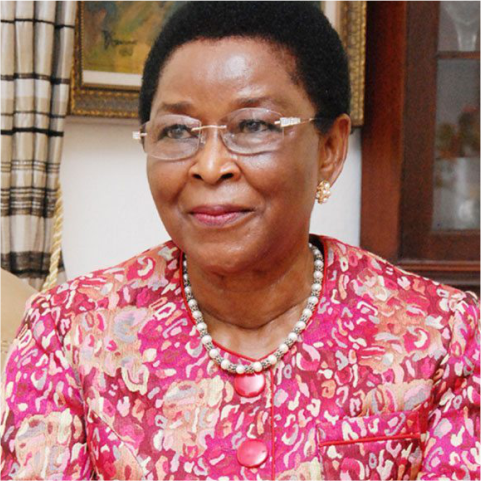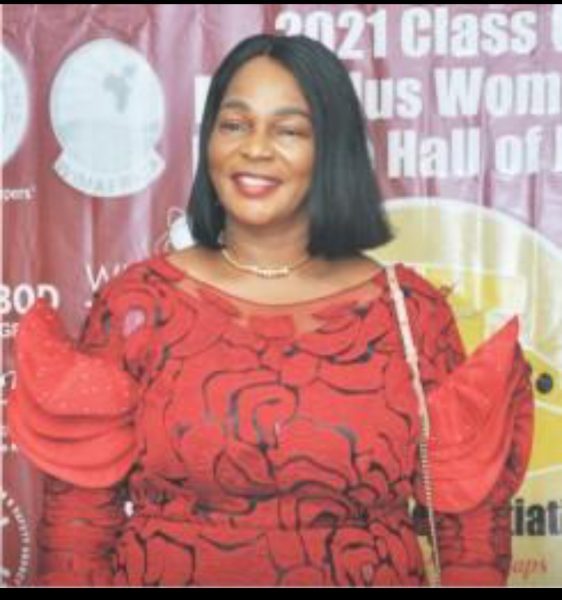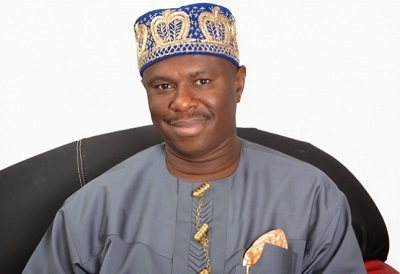How I Earned Respect Of My Superiors As A Young Lawyer – Mbanefo

By Kenneth Jukpor
Mrs. Monica Mbanefo is a lawyer with over 45 years experience, 38 of which have been in the transport and maritime industry where she has been at the hub in the formulation of polices at national, intergovernmental and international levels. Mrs. Mbanefo was Nigerian delegate to the International Maritime Organization (IMO) meetings of the Council, Assembly and Legal Committee from 1984 to 1990. She led many delegations to IMO and the United Nations Conference on Trade and Development (UNCTAD).
Monica is a Hall of Famer in the 2014 Class of the MMS Plus Woman of Fortune Hall of Fame. She was one of the Guest Speakers at the recent 2018 African Women in Maritime (WIMAFRICA) Continental Conference/ Annual General Meeting (AGM). Shortly after the event, she sat with MMS Plus explaining her motivations, challenges and ordeals as a woman in her career. She also provides advice for younger women and identifies the major impediment to trade facilitation especially at the nation’s ports.
Excerpts:
As a woman, how would you describe your growth in your career, the challenges and the perspective of a Nigerian woman’s place in the society?
It’s not easy being a woman because a lot is expected of you; particularly from a developing country. This is because you are first identified as someone’s daughter or someone’s wife. No matter how important you think you are and irrespective of what you have achieved you still need your husband’s permission to get a passport and other basic things like that.
I must commend Nigeria because the nation encourages women and to a large extent, we do treat women rightly in Nigeria. However, people in the developed countries have an erroneous perception that Nigerians don’t treat women right. Nigerian women achieve what they achieve because the men allow them to thrive. The men don’t look down on them; rather they encourage them. I know several tribes in Nigeria where the norm is that men, who are mostly uneducated, send their wives to the universities because of their value and regard for women. They believe that the family is united and works together and women ensure that the family stays united and they continue to get a lot of encouragement from Nigerian men.
My career as a legal practitioner
As a young lawyer, I joined the Federal Ministry of Justice and went through all the departments. That explained how I amassed valuable experience and the United Nations were keen to take me amongst the many candidates in those days. We were mentored in the Ministry of Justice. We didn’t just do the job but we worked closely with the supervisors and directors. The experience was very good and rewarding. There was no time for frivolity.
I recall a certain time when my baby was ten months old and the Ministry of Justice was still in Lagos because Lagos was the Federal Capital. I was asked to go to Nnewi for a case and I asked how I was supposed to make that trip with a 10-month old baby. I recall my director saying to me, “If you can’t do what the men can do, then you shouldn’t be here. My wife is at home”. He was right because one shouldn’t go somewhere to expect favours. If you must take a man’s salary and do his job, then you must be able to do it properly and learn to cope. I spoke my mother-in-law who was in Onitsha at that time and she asked me to come with the baby. I went to Onitsha with the baby and I was transiting from Onitsha to Nnewi daily until the case was over. After that I toughened up; I knew that he was a good man but those words made me know that I had responsibilities. I shouldn’t expect that because I was a woman I would avoid doing my job.
As a woman, you should get that job, contract or promotion because you’re the best and not because you are a woman. You have to work double if you intend to get the promotion ahead of the men. You have to be able to care for your children and everybody and still perform on the job. When you accept this challenge, you would realize that you can cope with it. That was how I started, although at some point I thought that I was going to give up because the stress was too much. I came back home to children at times they had measles and I had to care for them, assist them with school homework and all that. By the time I put them to bed; I pull out my files and begin to work on my case. The next morning I was in court and I had to argue intelligently in order to win the case.
When I was in Pupil State Council I won a case against Rotimi Williams. At that time, Rotimi Williams was real law and it was on the front page of Sunday Times the next morning because it was a Friday case. Since then, I resolved that nothing could stop me and I had a lot of encouragement from my husband.
Advice for young career women
My advice to young women is to better ready for hardwork. What saved African women; particularly Nigerian women is that they weren’t given any quota system. If there was such quota system and special reservations for women, they would have been lazy and complacent. They have taken things for granted with the assurance that there was provision for them to step into positions of leadership and governance. However, women had to work for things. They had to work very hard and possibly harder than the men to get things. To get that job you desire as a woman, you have got to work and when you eventually get the job, ensure that you aren’t lagging behind in your obligations. Get the job done.
I remember one occasion that should have made some women feel insulted but I felt very happy. I Solicitor-General asked me to write an advice to him on something that was very important. I did an extensive research and wrote a detailed advice and submitted to him. He read it and said; “This is brilliant. Oh, I will do it straight away!” I said to him, “Hold on Sir! This thing concerns your life, so you should discuss it with your wife” It was something personal and it was appropriate that he discussed with his wife before he took the steps he was planning to take. He looked at me and said unequivocally; “You can’t discuss such sensitive thing with a woman!” I laughed inside because I’m a woman; I wrote the advice and he was ready to implement it yet he says such things shouldn’t be discussed with a woman.
I was happy because he didn’t see me as a woman. He wasn’t seeing me as a woman but as a colleague he respected. From that point I knew that all my colleagues including the Ministers didn’t see me as a woman. I had placed myself in such a position that they think about my brain and what I could contribute to their work and not my pretty dress or nice handbag.
They saw me as a professional that they did respect. They could ask for my opinion and when I give it to them, they consider it because they are happy with it. I could go to court and you win the case. I could give an advice and they would rely on it. They saw me as a brain they respect. I know that there are many young girls like that and I encourage them to always put in their best.
Sexual Harassment of Women at Workplace
On the issue of harassment, yes some people do harass people but there is a level where you could place yourself because you work so hard and you are relevant; they wouldn’t want to lose you. They know if they harass you, you would leave so they would respect themselves because they value your contributions to the organization.
While I sympathize with women who have being harassed at the place of work, but it never happened to me throughout my career. Women have it tough and that is why when we rise to the top we should be willing to assist the young girls. I was able to help mentor the likes of Mrs. Mfon Usoro, give her advice because I didn’t want her to suffer what we suffered. At the time we were in government agencies, it was just men. I was one of the few women who were able to come into such organizations at that time. Others have followed in their numbers today, but it is very important that they continue to believe in themselves and not be content with the excuse that because they are women there are certain things they couldn’t achieve. Anything a man can do, a woman can also do!
Today, women are captains of ships! There is nothing that a resilient woman can’t achieve! The fact that they cope with managing the home, children, babies and everywhere shows that they have learnt to multitask and they can be very resilient. When they want to do something they can be very stubborn and persistent.
Trade facilitation in Africa
On today’s discuss about trade facilitation in Africa is apt but one of the major challenges has been infrastructure. When you don’t provide the required infrastructure, simple things like roads, railways and have speedy and transparent customs procedures at the ports; you can’t truly facilitate trade.
At the IMO, they came with the Convention on Facilitation of International Maritime Traffic (FAL) to facilitate trade and lessen the burden in the movement of goods across borders. The Convention’s main objectives were to prevent unnecessary delays in maritime traffic, to aid co-operation between Governments, and to secure the highest practicable degree of uniformity in formalities and other procedures. In particular, the Convention aimed at reducing the number of declarations which can be required by public authorities.
Let me give you an example that illustrates what happens in Nigeria that hinders trade.
For example; you buy something for £20 and ship it to Nigeria but after the demurrage incurred as a result of the bad roads, absence of scanners for Customs examination and other unnecessary charges; the importer would be forced to sell the goods for £300 in order to make profit. In another country that facilitates trade, that item could still be sold for £20 or slightly higher than that price. Nigerians who are the end users of the products and services suffer because they would be unable to afford such items because of the inflation.
UNCTAD also came up with another crucial convention to facilitate trade since 1980 and it hammered on multimodal transportation. This would make it easier and cost friendly to get goods move from the point of origin to the point of destination.
We can’t have a viable economy with the provision of these critical infrastructures. Look at the roads to Tin Can and Apapa ports, they are impassable. How do you facilitate trade in such environment?
If we could correct this situation as the Federal Trade is planning to do, and we ensure that we get things right with regards the facilities for the Customs as well as their attitudes to their operations, we can truly facilitate trade. These factors are very important.







